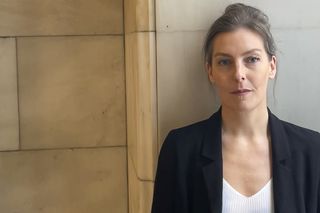Trinity’s honorary degree for Dalai Lama could yet be awarded — despite expected backlash from China
The Dalai Lama has lived in exile from Tibet for more than 70 years
Trinity College Dublin has said that the Dalai Lama — the Tibetan spiritual leader — could yet be awarded an honorary degree by the university.
The Sunday Independent last week revealed that, in December 2019, the honorary degree committee chaired by Mary McAleese — the former President of Ireland and Trinity’s Chancellor — took a proposed honour for the Dalai Lama off its agenda, after Ms McAleese set out how the university and Ireland could expect “serious” repercussions from China.
A senior Trinity official said the university would be “stupid” to ignore that it had spent 15 years building up relations with China, and this work could be put at risk by a symbolic gesture. China invaded Tibet in 1950 and annexed the country.
Sources who raised concerns about the decision were told last week that Trinity could still honour the Dalai Lama, as his name is still on the university’s list.
Barry Ward, a Fine Gael senator, said the 2019 decision was a “worrying move” by Trinity.
“Decisions by universities about honorary degrees and all academic matters should be made free of fear of the Chinese Communist Party,” he said.
Mr Ward met Linda Doyle, Trinity’s Provost, at the Ploughing Championships last week and sought a meeting with her.
“There are a number of us in the Oireachtas concerned about the increasing weight that China tends to put on institutions,” said Mr Ward. “I was on the board of UCD for years and was uncomfortable with the funding of the Confucius Institute.
"There are loads of commercial opportunities that seem dependent on non-interference with what China wants. They seem to seek to scupper anyone that disagrees with them.”
Mr Ward, a member of the Inter-Parliamentary Alliance on China, said Chinese influence on academic institutes had a “pervasive effect”.
“I suspect no one from the Chinese government said: ‘If you honour the Dalai Lama we will screw you over,’ but the fact is the latent concern affects the way people think.
“What if a student wants to do a thesis on Tiananmen Square, or the effects of Chinese national security law, or the Uighur genocide? Will they get academic support?”
Mr Ward has particular concerns about Chinese technical espionage on its critics.
He was contacted by the Chinese ambassador over his comments about the Uighur genocide and offered to meet the ambassador in his embassy.
“I was warned by Irish officials that if I meet him in the Chinese embassy, I am not to bring my phone — because their technology will extract all the information from it,” he said.
The Chinese embassy did not respond to a request for comment.
Join the Irish Independent WhatsApp channel
Stay up to date with all the latest news














